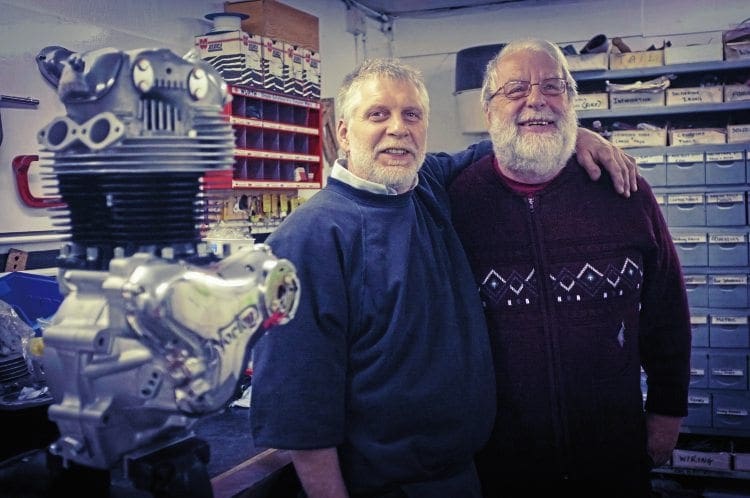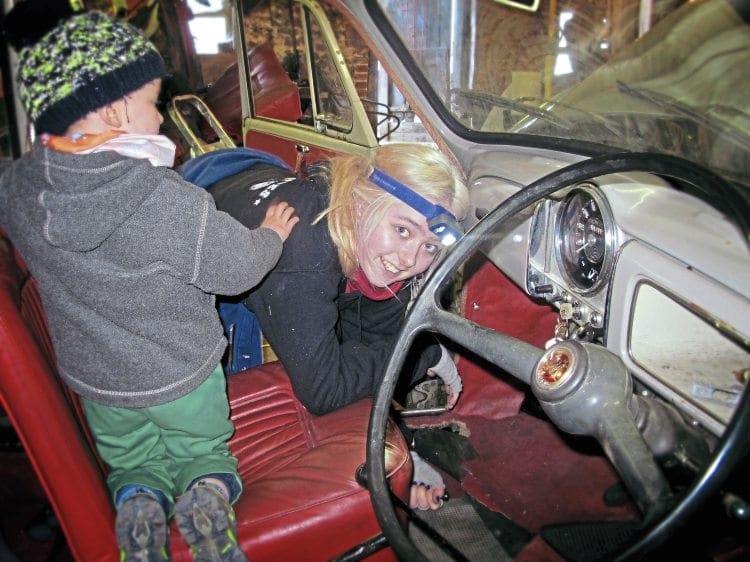Beauty is more than skin deep
‘How much? It’s not worth that.’ A commonly heard phrase when looking at a bike for sale. Especially a classic, or old, bike where there is no industry-wide guide book.
It could be aimed at a rose-tinted owner, a simple chancer, or dealer. But it could be more meaningful than just someone wanting to extract as much money from the deal. It may be a true representation of the work, effort and trouble that has gone into that bike.
Enjoy more Classic Bike Guide Magazine reading every month.
Click here to subscribe & save.
To be honest, it pees me off. You get know-it-alls in all forms of life, but how can you say a 1973 model is worth ‘X’; the same as an identical bike. They are, after all, 45 years old and have probably led totally different lives. So let’s look deeper.
One came from America and was then repatriated, has no service history, an age-related plate but has had a lovely, sumptuous paint job and some new silencers.
The other, is not as chintzy. The seat looks saggy, there’s a little rust on the silencers and the tank is marked. But inside, the engine has been rebuilt by an ex-factory engineer, with top quality bearings, parts and has been set up correctly. Which would you go for?
I contemplated this after handing over several hundred pounds for some bottom end bearings and other unseen parts for my Norton single.

Friends and I had agreed that it felt okay as was, but as the bike is apart and I’m going through it all, it seemed little sense to skip the fundamentals. Call it insurance. But it means I can’t afford a shiny exhaust for now, yet I’ll be happy knowing the business end is in good order.
Will it make it worth more? That depends on if I: (A) ever sell it (I am a hoarder), or (B), if the potential buyer realises what a tricky and expensive job it is. ‘How much?’ I may well hear…
This is in no way an advert, but I popped in to see Les, Kate and the lovely people at Norvil recently. Yes, the amassed parts for all different models are staggering, but it’s what you can’t see that I found more interesting.
Les’s knowledge, earned through being in this game a long time, is staggering, and frankly at some points I felt it would be impossible to retain, let alone learn all people like him know.
But thanks to Les and Chris, I went away wiser, more confident with my tasks that await and safe in the knowledge that these old bikes we love have got some future, thanks to this small world of suppliers that continue to source and make parts for our classic bikes.
We pay homage this month to the grandad of all modern Superbikes, the Honda CB750, on its 50th anniversary.

I was lucky enough to ride one a couple of years back (thanks, David Silver – never did tell you that I almost left it decorating the boot of a car thanks to the rest of the bike feeling so modern, apart from the front brake…) and as someone who has spent most of their life on the latest bikes, I was staggered by how it felt like a modern machine.
What on earth would it have felt like in 1969 after a life of British bikes?
If you did ride one early on, we’d love to hear what you thought then and how it was perceived.
One thing I noted from an original test, that hasn’t changed, was how the front brake was never any good… Still, hope you enjoy!
Right, I’m off to the workshop. I’d love to tell you that I’m working on a bike; truth is I’ve got to weld up my daughter’s Morris Minor.
More work you’ll never see or have appreciated – not even by an MoT tester nowadays…
Be good!
Matt Hull, Editor



